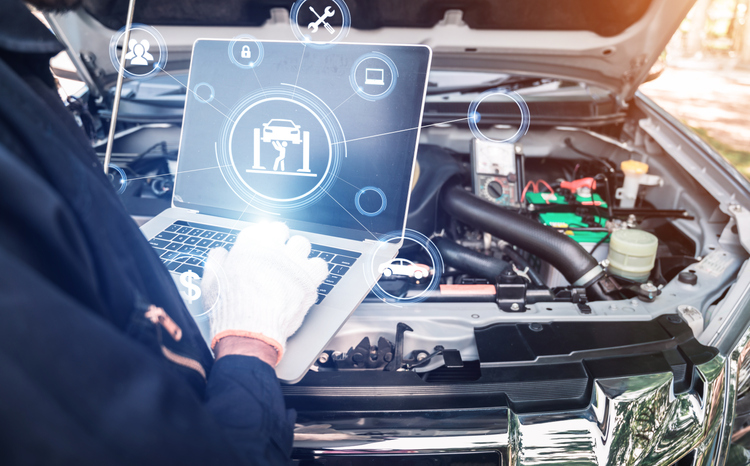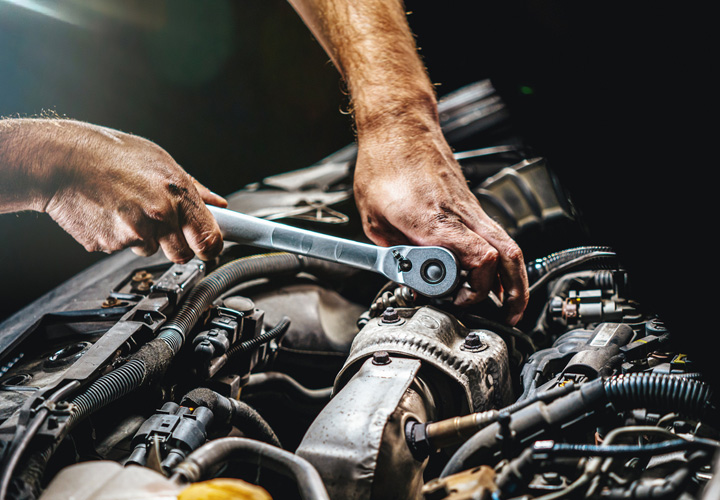Wiretaps On Wheels: How Is Your Car Collecting And Selling Your Personal Data?
Safety Info September 18, 2023 0 COMMENTS
Recently, there’s been a buzz around automobile manufacturers selling your personal information, while some say they would share it with government authorities even without a court order.
With the increase in the number of sensors like telematics or fully digitized consoles, this gesture of capturing the personal data of users is on the rise.
Read on to delve into the various ways automakers are finding ways to be transparent about data collection while staying relevant to the latest technology. You can even consult Mission Viejo auto accident attorney in case you need any legal consultation.
While vehicles with their “accessories” like sensors easily capture the data, the drivers have almost no control over it. According to the nonprofit Mozilla Foundation, there are no clear security standards, and it concerns the carmakers’ susceptibility to hacking.
Other aspects of concern relate to sensitive conversations between people captured by the microphones in the cars. Similarly, the cameras facing inwards and outwards are a serious threat as the passengers keep moving. As per the studies by Mozilla, cars were considered a concern for privacy on other parameters such as reproductive health apps, smart speakers, and other home appliances.
The study reveals that nineteen automakers say they can expose your data according to their notices. Half of them claim they can share their information with government authorities on a request, even without a court order.
While the automakers are reluctant to disclose to whom they sell your information, the researchers doubt that it could be to data brokers, marketers, and dealers. In addition, partners of installed products or services, including Google Maps and Onstar, are also capitalizing on the data.
Albert Fox Cahn, a technology and human rights fellow at Harvard’s Carr Center for Human Rights Policy, said, “Increasingly, most cars are wiretaps on wheels. The electronics that drivers pay more and more money to install are collecting more and more data on them and their passengers.”
He added, “There is something uniquely invasive about transforming the privacy of one’s car into a corporate surveillance space.”
A trade group representing the interests of carmakers in the U.S. presented a letter to the U.S. House and Senate Leadership expressing its goal of protecting customers’ privacy. The group requested a federal privacy law as a combination of various state laws causes confusion among customers and makes compliance difficult.
In the absence of such laws, the electronic devices capture all the personal information collected and used by various players while also exposing it to cybersecurity breaches.
With regard to this, the Associated Press asked the Alliance whether it allows the customers to completely opt out of data collection and grants them permission to have the data deleted.
The response was that while customers completely opting out may pose safety concerns, it certainly gives them the privilege to make decisions on how the data should be used in Marketing or by third parties. If you wish to delve into the legal implications associated with it, it is advisable to reach out to a Mission Viejo auto accident attorney.
According to a Pew Research survey, 52% of Americans were wary of using a product or service that would collect their personal information.
Japanese automaker Nissan surprised the researchers with a detailed breakdown of its privacy collection document. It expressed that privacy information included sensitive details like driver’s license, immigration status, race, and sexual orientation.
In addition, Nissan says it can share various insights such as consumer preferences, behavior, attitudes, intelligence, and abilities.
The electric automaker Tesla was rated high on Mozilla’s creepiness index. Tesla stated that if the owner opts out of data collection, then as per its privacy policy, it may be difficult to contact the driver in case of serious damage or inoperability.
However, neither Nissan nor Tesla responded to any questions on their practices.
Mozilla’s Caltrider introduced laws in the EU’s General Data Protection Regulation or California’s Consumer Privacy Act to force carmakers to explicitly provide all existing data collected.
She says it’s just the beginning and compares it to the 2010’s evolution of surveillance-based displays, which was the result of a consumer backlash.
RELATED ARTICLES
Recent Posts
- Middle Tennessee Cities Urge Water Conservation as Drought Persists
- Kurt Busch’s DWI Arrest: A Cautionary Tale of Speed, Intoxication, and Legal Consequences
- From Music to Mediation: Billy Ray Cyrus’s High-Profile Divorce
- Political and Ideological Differences Impacting Divorces and Custody Battles
- Major Theft Ring Busted: Over $200,000 in Stolen Lego Sets Recovered in Eugene, Oregon
Categories
Our Supporters
Gold Supporters
Christopher Simon – Atlanta Truck Accident Lawyer
Skiver Law Firm – Phoenix Truck Accident Lawyer
Winer, Burritt & Scott, LLP – Los Angeles Clergy Abuse Law Firm
Michael E. Fenimore P.A. – Pensacola Car Accident Lawyer
Pillsbury & Coleman, LLP – San Mateo Long Term Disability Lawyer
The Law Office of Randall J. Wolfe, P.C. – Oregon City Personal Injury Lawyer
Davies Hothem Injury Law – Buford, GA Car Accident Attorney
Houston Federal Criminal Defense Attorney
Darrow Law Firm – Houston Federal Crime Lawyer
Kansas City Personal Injury Lawyer
Atlanta Truck Accident Attorney
Aitken *Aitken* Cohn Trial Lawyers – Santa Ana Personal Injury Attorneys
Dawson Law Group- Portland Personal Injury Attorneys
CT Mediation Center- New Haven Family Law Attorney
Little Rock Personal Injury Lawyer
Katy Car Accident Lawyer
Franklin Divorce Attorney
Palermo Law- Long Island Personal Injury Lawyer
Dan Rose – San Francisco Car Accident Attorney
Taylor Siemens – Liberty, MO Personal Injury Attorneys
Pfeifer Law Firm – Little Rock Car Accident Lawyer
Walkup, Melodia, Kelly & Schoenberger – San Jose Car Accident Attorney
Solomon, Dwiggins, Freer & Steadman – Las Vegas Business Litigation Lawyer
Roane Law – Asheboro NC Car Accident Lawyer
Dorsch Law Firm – Overland Park Estate Planning Attorney
The Tennessee Sledgehammer – Hermitage, TN Car Accident Lawyer
Cook Law Group – Gainesville, GA Car Accident Lawyer
Simon Bridgers Spires – Atlanta Personal Injury Lawyer
Injury Law Associates – Kansas City Motorcycle Accident Lawyer
Potts & Potts – Honolulu Personal Injury Attorney
Ed Palermo –New York Criminal Defense Attorney

